 We’ve had a few really solid months in terms of quality metal output, and I’ve been somewhat on top of most things this year which is a change from my usual flailing around. I’ve likely missed something somewhere but given the amount of time already spent listening to music, I don’t think I could cram anymore in. Here’s a few of the things I thought were noteworthy and worth talking briefly about, the ones that didn’t make it in this time might see the light of day next go round. If you really think I’m missing something that needs to be heard by all means let me know in the comments below, I need all the help I can get!
We’ve had a few really solid months in terms of quality metal output, and I’ve been somewhat on top of most things this year which is a change from my usual flailing around. I’ve likely missed something somewhere but given the amount of time already spent listening to music, I don’t think I could cram anymore in. Here’s a few of the things I thought were noteworthy and worth talking briefly about, the ones that didn’t make it in this time might see the light of day next go round. If you really think I’m missing something that needs to be heard by all means let me know in the comments below, I need all the help I can get!
 Judicator – The Last Emperor:
Judicator – The Last Emperor:
Tucson’s Judicator are the latest in a volley of trad/power metal shots fired from the States, and with The Last Emperor they might actually win enough critical acclaim to become a fixture on the scene. Theirs is a decidedly European leaning take on the style, heavily influenced by classic mid-period era Blind Guardian. This shouldn’t come as a surprise once you hear this record, but its worth mentioning that their founding members met at a Blind Guardian show in 2012, and having first hand experience myself at just how magical those shows are in particular, I wonder why more power metal bands haven’t blossomed in their wake. Anyway, at the heart of Judicator are vocalist John Yelland and guitarist Tony Cordisco, both working as primary songwriters together, Cordisco working up the music and Yelland crafting his own vocal melody ideas. Their new album is actually my introduction to the band, arriving typically late to the party (this is album number four for them, three if you consider the first to be what it really is, a demo), I was introduced to them via the accumulated murmurings at the US Power Metal Connection Facebook group and the /r/powermetal subreddit. Everyone seemed to be eagerly anticipating its March 30th release above anything else, so like a kid elbowing his way through a throng watching the news on TV at a storefront window, I had to see what everyone was going on about. Two tracks in and I was immediately sold and bought the album from their Bandcamp a day before its official release.
It shouldn’t take long to sell you on it either, the opening title track being a near perfect microcosm of hearing their obvious influences shining through yet also detecting their own personality coming through. Midway through, they abruptly skip away from a very Blind Guardian-esque, layered vocal laden mid-tempo passage to a sudden gear shift into speed metal with group shouted backing vocals, a combination that reminds me of a metalcore approach (albeit without sounding ‘core). I imagine its impossible to write a review about these guys and not mention the influence of the ‘Bards, and while other bands have shown that influence before (Persuader anyone?), the really impressive thing about Judicator is just how that influence manifests itself —- the folky vocal passage towards the end of “Take Up Your Cross”. Yelland isn’t so much a dead ringer for Hansi in tone as he is in approach, something heard in his choice in diction, phrasing, and of course the innate sense of when to layer a vocal with heaps of harmonies. You get to directly hear that contrast on “Spiritual Treason” where Hansi himself shows up for a guest vocal spot, as ringing an endorsement of Judicator as you could envision. Its a fantastic track, epic in scope and feel, and while the two singers complement each other really well, the star here might be the songwriting itself, crisp, bracing and energetically bouncing along (its been awhile since we’ve heard Hansi in something this lean and mean).
Nine Circles published a nice interview with Yelland and Cordisco, one worth checking out if only for the glimpse into the tons of behind the scenes work that American power metal bands have to go through. The insight into this album however yielded a few surprising details, the first being that this is the band’s first album without harsh vocals and ballads both. There are softer dips into folky acoustic territory scattered throughout The Last Emperor, and they sounded so excellent that I wondered why these guys weren’t trying their hand at a longer piece composed in that vein —- I’ll have to dig into their discography to find that then. Its not a knock against this album though, because I get what they were trying to do in maintaining a certain level of energy throughout (somewhat similar to what Visigoth recently accomplished on Conqueror’s Oath). Reading Cordisco’s description of how he approached the songwriting here only reinforces what I felt when hearing the album for the first time, that there’s a real methodical level of thought that went into the songwriting here, even down to tiny details like sudden riff progression changes and the design of hooks (vocal and musical both). This was a real surprise, a knockout album from a band that wasn’t even on my radar until recently. It gives me hope for the future of power metal which seems to be flourishing into a new renaissance recently with the likes of Visigoth, Triosphere, and Unleash the Archers.
 Barren Earth – A Complex of Cages:
Barren Earth – A Complex of Cages:
I’ve had a soft spot for Finland’s Barren Earth ever since being introduced to the project with their 2012 album The Devil’s Resolve (a Metal Pigeon Top Ten that year!), it being an intriguing mix of melancholic melo-death with very 70s prog-rock elements. At the time, Opeth had just undergone their neo-prog transition with the Heritage album and I wasn’t feeling it, so I was all to eager to fly the flag for Barren Earth pulling off the sound I wanted Opeth to be doing. But that’s an oversimplification of what they do, even if the comparison is completely justifiable, and as we heard on 2015’s On Lonely Towers they were forging a unique identity of their own. And that’s important because one of the things that always gets everyone’s attention about the band’s lineup is its supergroup of Finnish metal aura (two parts Moonsorrow, former ex and now current Amorphis, and the Finnish guitarist for Kreator). Since I missed out on reviewing On Lonely Towers, its worth pointing out here that it was their first without Swallow the Sun vocalist Mikko Kotamäki at the helm, and to his credit he was a big part of what made me love their previous album so much. His replacement is Clouds vocalist Jón Aldará, a vocalist whose clean vocals are a little more rich with emotive phrasing, not a bad thing by any means but one of the things I loved about Kotamäki’s cleans is his somewhat emotionally detached, distant approach. It lent an air of mystery to his performances with Barren Earth, whereas Aldará (damn these guys’ accented names!) puts almost the equal and opposite emphasis into emoting, something that tends to diminish its own power if done too often.
As far as melo-death vox go however, Aldará is on par with his predecessor, his tone having the right texture (somewhat blackened, nice crunch… what a weird way to describe the human voice). On “Further Down” you get a good balance of both his styles, and its a catchy track too, with a chorus boasting a memorable vocal hook and a nicely written major key guitar sequence that sets everything up. It was the major standout after my first couple listens to the album, and unfortunately, that’s kind of the problem with A Complex of Cages in the grand scheme of things. After a few weeks listening through it, giving it space, coming back to see if anything else would unlock, I’m realizing that its one of those albums that just isn’t sticking. Its a solid album when I’m actively listening to it, but apart from that one track I’m finding it difficult to have anything else stay with me long after I’m done. Now sometimes that’s fine, as was the case with Bell Witch’s Mirror Reaper, but those are outliers, and I remember how much The Devil’s Resolve would linger long after listening to it. Oddly enough the only other track that came close to having some kind of return value was the ten minute epic, “Solitude Pith” for its fantastic ending passage at the 7:40 minute mark. These are the reviews I hate to write the most, because the album’s not bad by any means, and its got interesting moments scattered throughout, but ultimately I feel like I’ve given it a fair amount of time and its failed to make a lasting impression. I’m going to revisit it in a few months and see how it goes.
Light The Torch – Revival:
I don’t normally listen to bands like these, but lately I’ve become a supporter of Howard Jones just as a human being, his appearances on the Jasta Podcast being so endearing that I’ve found myself rooting for him. His is an interesting story, not just for his time in Killswitch Engage’s rise to fame but in his battling depression, the brutal physical effects of diabetes type II, as well as crippling social anxiety. His current band has been known as the Devil You Know, but legal problems with their former drummer prompted a name change as an easy out, and so we have Revival, the first album in this mach 2.0 version of the band. The style here is more modern hard rock than metalcore, but sees a meshing of various elements largely due to Jones’ expressive and distinct clean vocals. Curiosity made me start listening to this album, and I started using it as a palette cleanser after so much more involved and complicated music I’ve been constantly listening to (Nightwish comp aside, the rest of the albums in this post are proof of that). Its definitely a simpler brand of heavy music at its fundamental core, focusing on anthemic choruses and vocal melody centered songwriting.
The riffs are fairly standard, not a lot of texture to them and sometimes that’s a keen reminder as to why I don’t normally bother too much with this genre of music as a whole, an example being “The God I Deserve”, with its turgid, bland slabs of distortion not really saying much besides filling in the vocal gaps. But lets not get ahead of ourselves here with too much musically focused analysis, because I doubt the people who really love stuff like this are fawning over the guitarists in particular. The attraction here is Jones himself, and on the opener and video track “Die Alone” which boasts about as positive sounding and anthemic (any good synonyms to replace that adjective with?) a slice of groove metal can be, they lean on their greatest strength. Its an addictive hook, and Jones has something inherently likable about his clean vocal approach, capable of being booming and rich at the same time, never losing an ounce of power. His growls are fine, and they add shades of color and complexity that’s badly needed in the face of the straightforward attack of the band, but if he did more of this kind of harmonized type clean singing in Killswitch, I might’ve been more of a fan. He showcases this again on “The Safety of Disbelief”, a strong bit of songwriting with some rather well executed self-reflecting lyrics. The themes here are a more personal slant on what Hatebreed does, a lot of purging of inner turmoil and self doubt, and it works. Not my usual cup of tea but it was a nice change of pace.
 Nightwish – Decades:
Nightwish – Decades:
I’m not sure if the more apt critique of Nightwish’s new career spanning retrospective is its utterly bizarre tracklisting, or once again my pointing out just how inane it is for a band to spend money making these compilations in the first place. Granted, the costs of such a project are lower than that of a studio album for the most part —- we’re talking primarily the costs of design packaging here, and presumably Nightwish had already made the arrangements long ago to be allowed to re-release parts of their Spinefarm past back catalog on a newer label arrangement. Whatever the business arrangements, Nightwish made the shrewd decision to promote the hell out of the fact that this was a band curated release, with the tracklisting picked out by Tuomas Holopainen himself and the liner notes as detailed and fan pleasing as you could imagine. So pleased and confident were they that they gave away copies to every single ticket buyer of their recent US tour, a nice little tie-in with the tour bearing the same name. I did scan their social media a bit to see fan responses to the free surprise gift vary from giddy to pleasantly surprised to “This is nice but I don’t own a disc player…”. Well then, the very fundamental issue indeed.
I’ll wonder aloud and ask you to join me, “Couldn’t this have been accomplished by simply having the band curate their own Spotify playlist, perhaps with some audio commentary tracks thrown in as a nice bonus? Oh wait, they did that —- Spotify has done a series called “Metal Talks” in which artists do that very thing for their newest release and Nightwish recorded one with Tuomas and Troy Donockley, and I found their commentary incredibly fascinating, Tuomas in particular going into details that few interviews manage to drag out of him. If you consider that Decades release on Spotify itself is in fact a glorified playlist, then its mission accomplished without the need for a physical release of any kind, but Decades was released on CD and vinyl. I don’t have a problem with that, I just hope it was worth it and that they won’t take a bath on it financially. I’ve written about my own internal first world struggle with my physical music collection, and the in past few months we’ve seen new reports about how Best Buy and Target might remove CDs from their stores by the summer (and articles reporting that vinyl and cd sales are beating digital downloads for the first time in years). I guess I admire the spirit behind a physical release like this, but am torn on the question of its necessity (though clearly others would disagree still), a debate largely informed by my own ongoing conflicted feelings regarding physical media.
Anyway, lets talk songs, because for die-hard fans I can easily imagine Decades being a flawed tracklisting, and its not well chosen for newcomers as well. I know Tuomas calls “The Greatest Show on Earth” his best work ever, that 24 minute long monolith that closed out their last album and is his Richard Dawkins narrated dream come true. To me and many others, it was the first one of his epics that didn’t seem quite gelled together, suffering from severe bloat in many passages and not enough in the way of strong motifs to keep me coming back (the spoken word was a chore as well). I’d actually argue that “Song of Myself” or or especially “Meadows of Heaven” were more apt choices as far as modern epics go, both hitting a particular core facet of Nightwish mythology in a more compact, memorable way. The tracklisting is in reverse chronological order, and as we travel through the recent albums, I wonder about the “Amaranthe” inclusion (surely one of the weaker songs of Dark Passion Play), and the lack of “The Crow, the Owl and the Dove” (some of Tuomas’ finest lyrics). The other chief glaring omission is “Everdream”, one of the band’s most beloved and iconic Tarja era gems, a song as central to Nightwish fans as “Nemo” or “Ghost Love Score” (both rightfully represented here). Only two songs from Century Child seems a bit strange, and I guess everyone could nitpick on what older songs should have made the cut but the ones they picked seem fine to me. Its just an unsatisfying overview in general however. I honestly wouldn’t recommend it to anyone in lieu of just directing them to a single studio album alone. It worked for the rest of us, it’ll work for them.
 Primordial – Exile Amongst The Ruins:
Primordial – Exile Amongst The Ruins:
I’ve had a meandering relationship with this band, really liking them upon my first introduction with the ever more incredible The Gathering Wilderness, their classic 2005 Celtic folk metal masterpiece. That enthusiasm ebbed and flowed over the years with their subsequent albums until 2014’s Where Greater Men Have Fallen, an album that saw them up the aggression level just enough to shake up their sound. A friend of mine who also likes them recently observed that he would forget about Primordial for years until the next album came around, where he’d pay attention to it, until he’d likely forget about it once again. It didn’t mean he didn’t enjoy those albums, but that for some undefinable reason, Primordial couldn’t stick with him the way other bands did. I think I’m in the same boat, because even though ‘Greater Men’ was a Metal Pigeon Top Ten Album in 2014, I haven’t really gone back and given it a proper listen through until now when prepping for this review. I’m coming into Exile Amongst The Ruins with that in the back of my mind, maybe even allowing it to amplify my expectations for an album in an unfair way by raising the bar too high. If the last album was a top ten list maker yet not something I’ve revisited out of pure enjoyment, then this one has to be something truly special right?
Well yes and no, because I certainly know that I’ll be adding a few gems from this one to my iPod (lately I’ve cobbled together my own ‘best of’ Primordial playlist in hopes of keeping the flame burning so to speak). The first one being “To Hell or the Hangman” which is a tightly wound ball of energy on a vibrating string of a guitar figure, propelled forward like a bullet train. Alan Averill’s ever wild, unrestrained vocals here are delivered like he’s standing on a rocky Irish cliff side, arms wide open while singing into gale force winds. Its the very definition of a kinetic song, and a vivid portrait of Primordial at their best, especially in the way it evokes that Celtic spirit without actually resorting to cultural cliches (ie a lot of bagpipes, fiddles, and over the top Celtic melodies). Then there’s “Stolen Years”, where a deceptively laid back succession of floating, lazy guitar chords create a hazy atmosphere, broken through by an overlaid guitar figure a few notes higher. At the 2:45 mark the build up unfurls into a slow motion crashing wave, all the emotional weight behind the guitar melodies only furthered by Averill’s incredibly moving vocal. There are other good moments scattered throughout, but there’s also a lot of times where you’re waiting for something to happen, to materialize into a memorable passage (this band doesn’t really do hooks) or instrumental sequence and it just never gets there. They don’t entirely derail what is a relatively good album, loose and lively in a way they haven’t been in years, but it also results in a feeling that everything is a little too unfocused.
 Oceans of Slumber – The Banished Heart:
Oceans of Slumber – The Banished Heart:
This is about a month late, but I thought since they’re fellow Houstonians and perhaps the biggest metal export from our city to date I’d give The Banished Heart an extended period of listening time. I’m glad I did because the first thing I heard from the album was the album opener and first single/video “The Decay of Disregard” and it just wasn’t working for me for whatever reason. To be honest, it still is one of the weaker tracks here and certainly a puzzling choice for the album opener, the slow, sludgy parts in the middle a little too meandering for my tastes. On the flip side, their choice for the title track as the second video release was spot on, despite its nine minute plus running time. This is Oceans of Slumber at their best, Cammie Gilbert pushing her vocals to their utmost emotional wrangling effectiveness, the usage of delicate, sad, and downright haunting piano courtesy of drummer Dobber Beverly in the middle passage reinforces the gravity of Gilbert’s heartbroken lyrics. At the 5:10 mark, he plays a figure that is pure Blackwater Park era Opeth in spirit, a beautiful melody awash in nostalgia and regret, and I find that I’m realizing he’s as much a talent on piano as he is with his always interesting percussion patterns. The song opens ups after that with the introduction of synth driven strings and an inspired bit of heavenly choral vocal effects helping to propel what is Gilbert’s watershed vocal performance. This was the first Oceans of Slumber tune I really could say I loved, even considering everything from Winter, and they even nailed the video for it, its visual aesthetic nicely understated, Texan in setting (those endless fields!), and darkly dramatic when it had to be.
On the heavier end of the spectrum, there’s a highlight in “A Path to Broken Stars” with its triplet infused riffs and intense sense of urgency. Gilbert has gotten better at learning how to develop her vocal patterns to mesh better with the heavier aspect of the bands’ sound, something that Winter needed. Here she doesn’t try to match the riffs rhythmically, being content to sing in a higher register at an entirely slower tempo, an old symphonic metal trick but it works for a reason. This is also a different shade of her vocal ability, something that could be classified as a little more ethereal, and it really works for her. What you don’t get so much throughout the album are her more bluesy inflected vocal stylings, but I think the songwriting helped to dictate the direction on that, and perhaps she and the band have simply grown into a new sound. Not everything is perfect here, there’s some songs that could use a little trimming, some where they don’t make enough use of a particularly impactful riff (thinking specifically of “Fleeting Vigilance”, and I wasn’t particularly taken with the closing cover tune “The Wayfaring Stranger”. I’ve heard countless versions of it before, its a pretty common folk song (Cash did it), but the digital effects and the telephone vocals here seems like distractions from what could’ve been a really fine recording. Oh well, the band’s gelled more and gotten better and they’re on the right track, that’s a good path to be on.
 Panopticon – The Scars of Man on the Once Nameless Wilderness I and II:
Panopticon – The Scars of Man on the Once Nameless Wilderness I and II:
Quietly in the middle of March, a new double album was released by Panopticon, better described as a project rather than a band given its solitary member, one Austin Lunn. Sort of like a Kentuckian equivalent to Vintersorg, I’ve been an admirer of his albums for awhile now, particularly 2015’s Autumn Eternal and the groundbreaking 2012 release Kentucky. If you’re not familiar, in a nutshell Lunn fuses Appalachia folk/bluegrass with blistering, second wave inspired Norwegian black metal. Now in truth, sometimes these aren’t pure fusions as they are juxtaposing individual tracks featuring each alongside the other, but its been interesting to see him continually strive throughout his discography to actually musical infuse his black metal strains with overtones of American folk. He might have finally nailed it though, because in the week I’ve been listening to this album, I’ve never been as captivated, intrigued, and flat out entranced by Panopticon as I am here. This album blindsided the heck out of me too, not even realizing it was released until I saw an update by the folks at No Clean Singing mentioning how Lunn wasn’t making it available ahead of time for reviewing purposes (the reason being that Autumn Eternal was leaked beforehand in a severely degraded quality and that rightfully pissed him off —- no problem with me by the way though, I rarely if ever get reviews up before an album has been released).
The consequence of such an odd album release approach is that this one is flying under a few radars, but I expect that will change as the mid-year best of lists some places publish get posted, in addition to old fashioned word of mouth. The instrumental folk intro of “Watch the Lights Fade” is a perfect mood setter, but in the blistering fury of “En Hvit Ravns Død” we get our first glimpse of how he’s integrating the two worlds of his soundscapes. The middle interlude of sad, discordant country violins and the sounds of forest creatures create a rustic ambiance throughout, and on “Blåtimen” and “Sheep in Wolves Clothing” Lunn uses overlaid lead guitar to create folky countermelodies set against the piles of tremolo riffs burning underneath. What he really excels at is using understated, minor key American folk as the tapestry for all the connective bits where the black metal is held at bay, and stepping back from this album in particular I’ve started to realize that it represents the very heart of his sound. The black metal ebbs and flows, and on disc two here it goes away completely. Its not meant to be the center of attention anymore like it once was, and I get the feeling that this is the kind of album that Lunn has been striving towards all this time. The rustic folk/alt-country of the second disc is gonna be an acquired taste for some, but I really enjoy it personally; it reminds me of Uncle Tupelo both in its lyrical perspective of down and out rural America but also in its lo-fi production wash. This is an album you owe it to yourselves to experience personally, too much for a simple review like this to convey. A magnum opus.


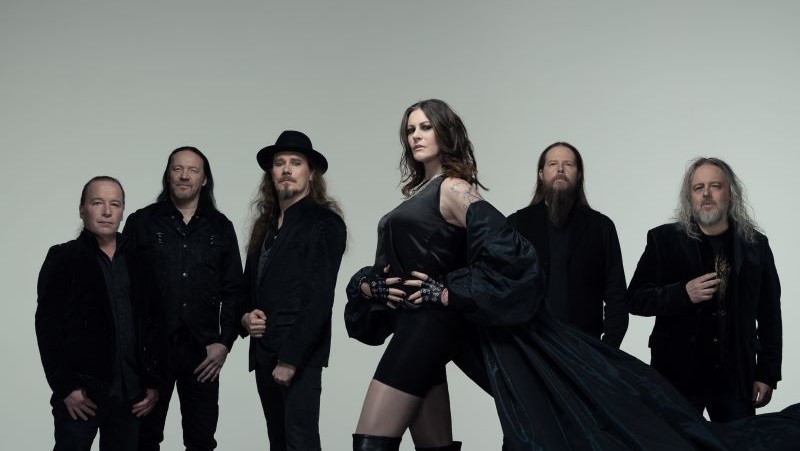
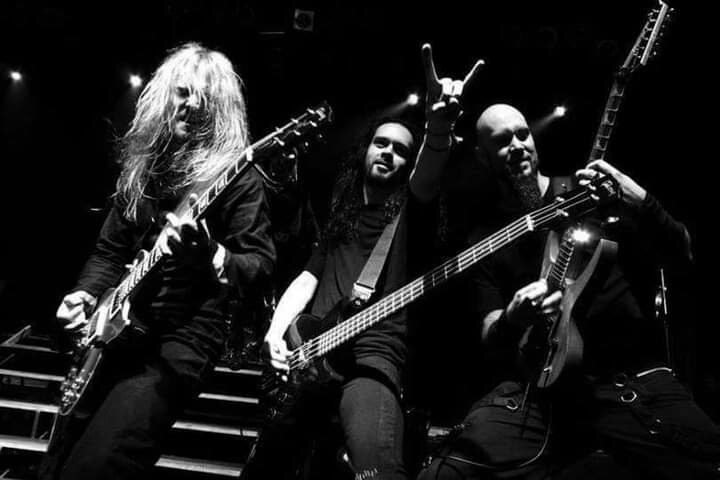




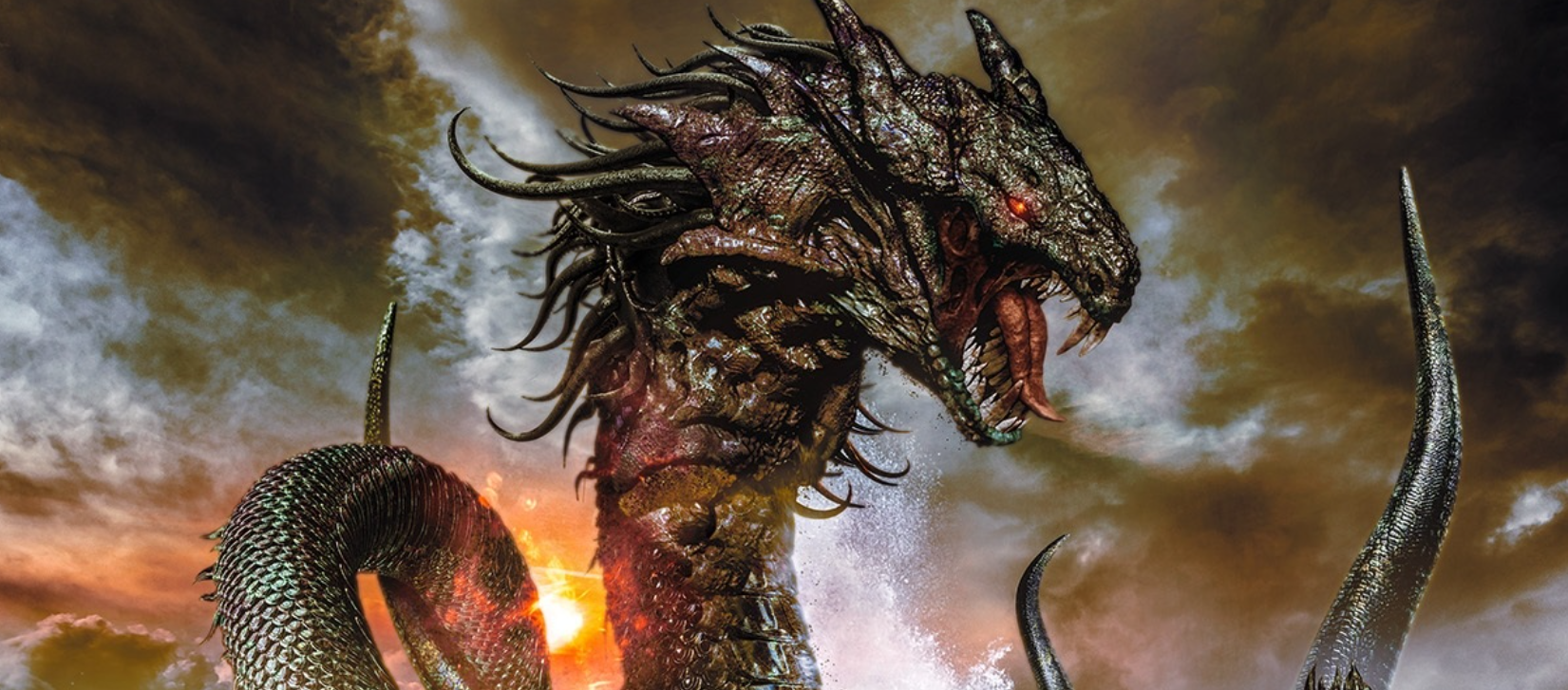


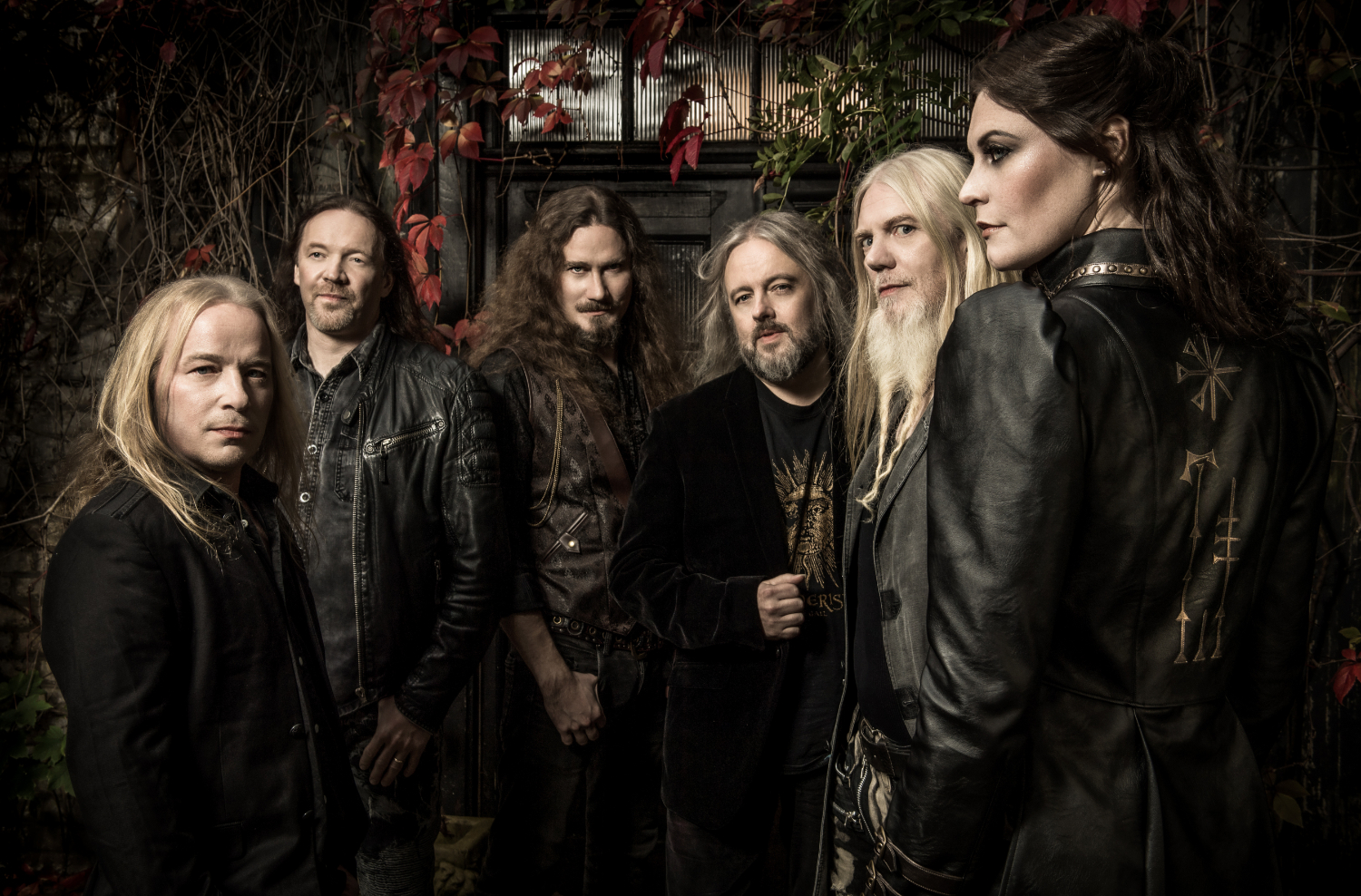


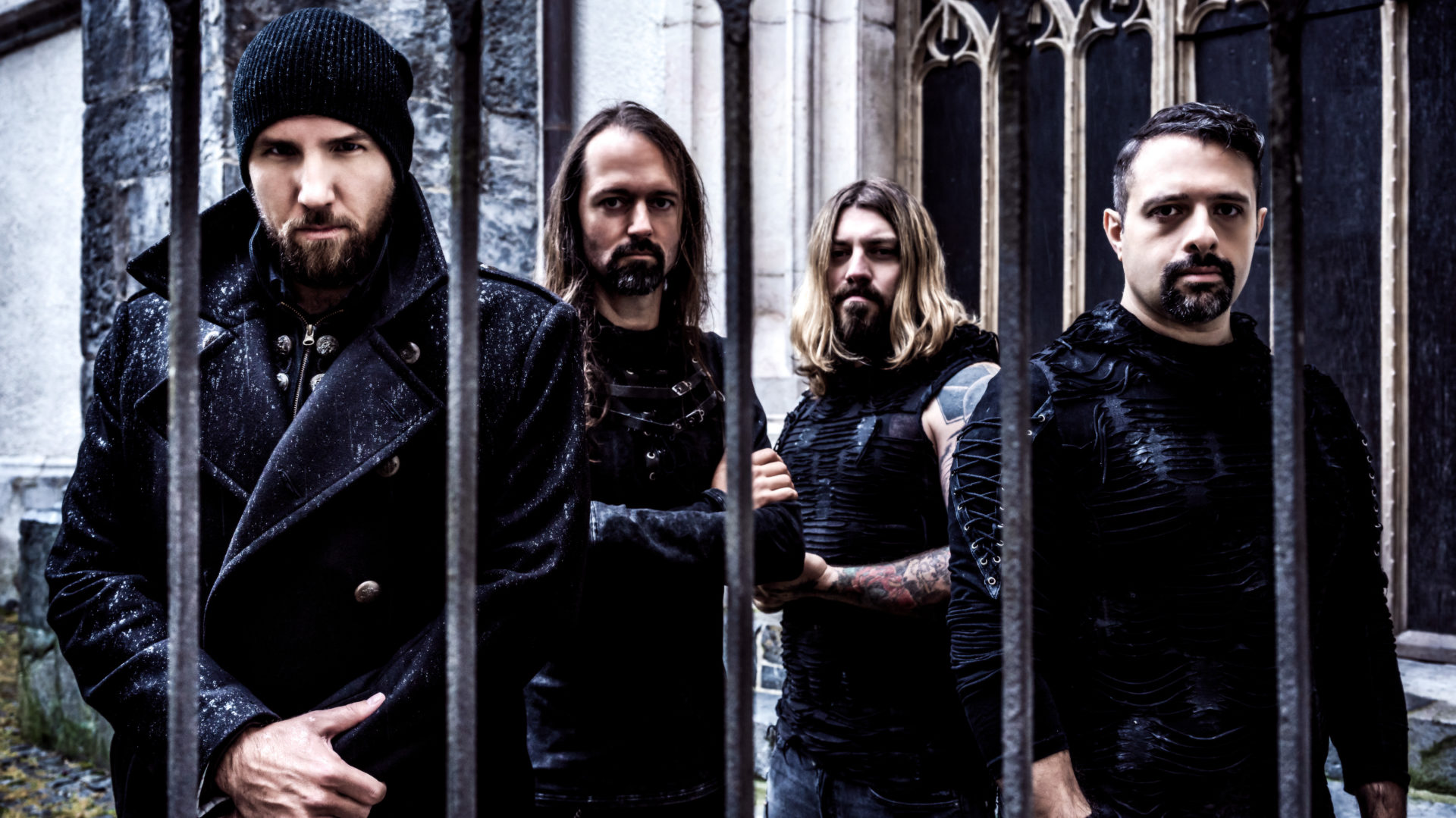




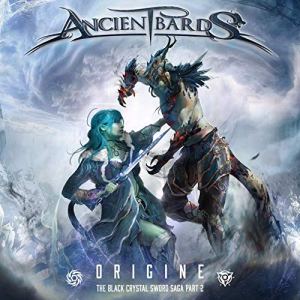
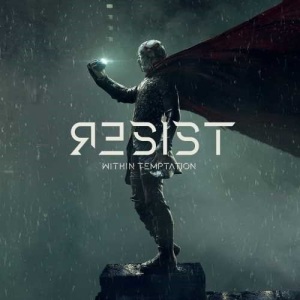
 We’ve had a few really solid months in terms of quality metal output, and I’ve been somewhat on top of most things this year which is a change from my usual flailing around. I’ve likely missed something somewhere but given the amount of time already spent listening to music, I don’t think I could cram anymore in. Here’s a few of the things I thought were noteworthy and worth talking briefly about, the ones that didn’t make it in this time might see the light of day next go round. If you really think I’m missing something that needs to be heard by all means let me know in the comments below, I need all the help I can get!
We’ve had a few really solid months in terms of quality metal output, and I’ve been somewhat on top of most things this year which is a change from my usual flailing around. I’ve likely missed something somewhere but given the amount of time already spent listening to music, I don’t think I could cram anymore in. Here’s a few of the things I thought were noteworthy and worth talking briefly about, the ones that didn’t make it in this time might see the light of day next go round. If you really think I’m missing something that needs to be heard by all means let me know in the comments below, I need all the help I can get! Judicator – The Last Emperor:
Judicator – The Last Emperor: Barren Earth – A Complex of Cages:
Barren Earth – A Complex of Cages:
 Nightwish – Decades:
Nightwish – Decades: Primordial – Exile Amongst The Ruins:
Primordial – Exile Amongst The Ruins: Oceans of Slumber – The Banished Heart:
Oceans of Slumber – The Banished Heart: Lione / Conti – Lione / Conti:
Lione / Conti – Lione / Conti: Angra – ØMNI:
Angra – ØMNI: Tengger Cavalry – Cian Bi:
Tengger Cavalry – Cian Bi: Visions of Atlantis – The Deep & The Dark:
Visions of Atlantis – The Deep & The Dark: Visigoth – Conqueror’s Oath:
Visigoth – Conqueror’s Oath: You might not know this, but I’m a massive Therion fan, as in they’re one of my top five favorite metal bands of all time kinda massive. Sadly, in the seven years this blog has been going, I’ve gotten to write about them just a handful of times. Now that’s partially my own fault for not getting around to doing that retrospective I’d planned for them years back, but its mostly because the band’s last studio release was way back in 2012 with their classic French pop covers art project Les Fleurs du Mal, and their last studio album of original material two years prior to that with Sitra Ahra. Previously, their longest gap between releases was three years, but to their credit we did get a
You might not know this, but I’m a massive Therion fan, as in they’re one of my top five favorite metal bands of all time kinda massive. Sadly, in the seven years this blog has been going, I’ve gotten to write about them just a handful of times. Now that’s partially my own fault for not getting around to doing that retrospective I’d planned for them years back, but its mostly because the band’s last studio release was way back in 2012 with their classic French pop covers art project Les Fleurs du Mal, and their last studio album of original material two years prior to that with Sitra Ahra. Previously, their longest gap between releases was three years, but to their credit we did get a  It might be unfair to bring up the Blind Guardian example, because everyone works differently, and maybe Johnsson is the kind of artist who wants to only focus on one thing with maximum intensity for a lengthy period of time. I get that, and respect it. I just wonder if he ever considered the other route, of making this a long burning project that he’d work on in the off-times from normal Therion albums and tours, even if it did take twenty plus years? The discussion is moot of course, because here we are with Beloved Antichrist in its finished, recorded form, but there are plans to stage this somewhere and ambitions to see it take on a life of its own as an opera entity separate from Therion. We’re realistically looking at another three to four years before a new Therion album could potentially come to fruition… that’ll make it ten plus years since Sitra Ahra, a heck of a timescale for any rock/metal band not named Guns N’ Roses. The reactions that I’ve seen to Beloved Antichrist have been as polarizing as you’d expect, and on the US Power Metal Connection Facebook group they were particularly blunt and forthright with their nearly overwhelming disapproval. I was even provided with some insight by a classically trained soprano as to why in her opinion Therion’s opera was terrible even by opera standards, never mind the metal ones. I should add that all the opinions on this group were stated pretty respectfully… you can only imagine the stuff written elsewhere.
It might be unfair to bring up the Blind Guardian example, because everyone works differently, and maybe Johnsson is the kind of artist who wants to only focus on one thing with maximum intensity for a lengthy period of time. I get that, and respect it. I just wonder if he ever considered the other route, of making this a long burning project that he’d work on in the off-times from normal Therion albums and tours, even if it did take twenty plus years? The discussion is moot of course, because here we are with Beloved Antichrist in its finished, recorded form, but there are plans to stage this somewhere and ambitions to see it take on a life of its own as an opera entity separate from Therion. We’re realistically looking at another three to four years before a new Therion album could potentially come to fruition… that’ll make it ten plus years since Sitra Ahra, a heck of a timescale for any rock/metal band not named Guns N’ Roses. The reactions that I’ve seen to Beloved Antichrist have been as polarizing as you’d expect, and on the US Power Metal Connection Facebook group they were particularly blunt and forthright with their nearly overwhelming disapproval. I was even provided with some insight by a classically trained soprano as to why in her opinion Therion’s opera was terrible even by opera standards, never mind the metal ones. I should add that all the opinions on this group were stated pretty respectfully… you can only imagine the stuff written elsewhere. The thing is that Beloved Antichrist is really an opera —- I know that might be stating the obvious but it needs to be reiterated again: It is an OPERA. Full stop. What we’re listening to here is the soundtrack to an opera that has yet to be staged, not a “metal opera” in the way we’ve come to know them via Avantasia or Ayreon, which have always struck me as more theatrically inclined concept albums closer to musical theater than anything resembling opera. Okay so if we view it in this light, where does that leave you and me as metal fans? I don’t know about you, but my experience with opera is limited to watching a few of them on PBS during those late night insomnia years, and I actually did enjoy them (they were subtitled) and didn’t click off after a few minutes. The one thing I remember absolutely not digging were the parts where dialogue was being sung, seemingly without regard to crafting a melody, an aspect I can now recognize as the “recitative”. But that’s really it, I know precious little about the history, structure, and appreciation of opera. I know what arias are, mostly because I have an unabashed love of Sarah Brightman’s solo albums, which tended to feature the inclusion of a few arias from various operas in addition to her original material. I’ve been a fan of hers dating back twenty years now, when I first saw her on PBS (yes, again) singing “Time To Say Goodbye” with Andrea Bocelli. She was my gateway into classical music alongside film soundtracks, and through her I started listening to Maria Callas, Anna Netrebko, and José Cura. Its not much of a classical education, but its a start.
The thing is that Beloved Antichrist is really an opera —- I know that might be stating the obvious but it needs to be reiterated again: It is an OPERA. Full stop. What we’re listening to here is the soundtrack to an opera that has yet to be staged, not a “metal opera” in the way we’ve come to know them via Avantasia or Ayreon, which have always struck me as more theatrically inclined concept albums closer to musical theater than anything resembling opera. Okay so if we view it in this light, where does that leave you and me as metal fans? I don’t know about you, but my experience with opera is limited to watching a few of them on PBS during those late night insomnia years, and I actually did enjoy them (they were subtitled) and didn’t click off after a few minutes. The one thing I remember absolutely not digging were the parts where dialogue was being sung, seemingly without regard to crafting a melody, an aspect I can now recognize as the “recitative”. But that’s really it, I know precious little about the history, structure, and appreciation of opera. I know what arias are, mostly because I have an unabashed love of Sarah Brightman’s solo albums, which tended to feature the inclusion of a few arias from various operas in addition to her original material. I’ve been a fan of hers dating back twenty years now, when I first saw her on PBS (yes, again) singing “Time To Say Goodbye” with Andrea Bocelli. She was my gateway into classical music alongside film soundtracks, and through her I started listening to Maria Callas, Anna Netrebko, and José Cura. Its not much of a classical education, but its a start. These moments of musical bliss are scattered everywhere, as on the opening strings during “Signs Are Here”, serene yet suggestive of some tumult down the road. Then there’s the choral vocal hook in “Never Again”, with just enough of a catchy, solidly Therion-ized guitar riff anchoring things underneath to provide it with a gritty earthiness. There’s a wild display of sturm und drang on “The Crowning of Splendour”, pitting its male operatic vocal leads against a spiraling build up of guitars and a thunderous orchestral arrangement. Another male lead vocal moment worth hearing again is on “Our Destiny”, which is structured far more closely to a verse/chorus format than any other piece of music here. Its very Therion-esque too, from its charismatic vocal melody to the distinctive melodic signatures present in its expressive guitar passages (even a brief glimpse of a guitar solo here!). It has a martial drum segue into “Anthem”, where Thomas Vikstrom as Seth (the Antichrist) leads us with a solo vocal over somber strings, and this sequence soon runs headlong into an explosive metal passage that invokes memories of an old Therion classic in “Wine of Aluqah”, down to the percussive tempos and the wild guitar patterns. The love dialogue in “Jewels From Afar” between Helena and Seth is set to bright major chords loosely strummed on chiming acoustic guitars, a welcome break from riff based rhythmic structures that results in some pretty melodies.
These moments of musical bliss are scattered everywhere, as on the opening strings during “Signs Are Here”, serene yet suggestive of some tumult down the road. Then there’s the choral vocal hook in “Never Again”, with just enough of a catchy, solidly Therion-ized guitar riff anchoring things underneath to provide it with a gritty earthiness. There’s a wild display of sturm und drang on “The Crowning of Splendour”, pitting its male operatic vocal leads against a spiraling build up of guitars and a thunderous orchestral arrangement. Another male lead vocal moment worth hearing again is on “Our Destiny”, which is structured far more closely to a verse/chorus format than any other piece of music here. Its very Therion-esque too, from its charismatic vocal melody to the distinctive melodic signatures present in its expressive guitar passages (even a brief glimpse of a guitar solo here!). It has a martial drum segue into “Anthem”, where Thomas Vikstrom as Seth (the Antichrist) leads us with a solo vocal over somber strings, and this sequence soon runs headlong into an explosive metal passage that invokes memories of an old Therion classic in “Wine of Aluqah”, down to the percussive tempos and the wild guitar patterns. The love dialogue in “Jewels From Afar” between Helena and Seth is set to bright major chords loosely strummed on chiming acoustic guitars, a welcome break from riff based rhythmic structures that results in some pretty melodies. But I’m over here going on about all these other instruments, and you’re probably wondering “Where’s the metal at Pigeon?”. Well check out “Behold Antichrist” for an awesome circular riff and the Therion-ized lead guitar overlays and solos that definitely push this more towards the metal end of the opera metal spectrum, particular at the 2:04 mark with an amazing Christian Vidal solo. I get Gothic Kabbalah flashbacks when listening to “Cursed By The Fallen”, not only from its female soloists but its juxtaposing beefy trad metal riffs alongside woodwind led musical bridges. The heaviest metallic moment comes in “Astral Sophia”, with its doomy, darkened riffing and foreboding male choral vocals, the song taking on quiet/loud dynamics throughout quite effectively. And then there’s “Shoot Them Down!”, which is described by Johnsson as being the music for a street revolution scene, and he purposefully invoked what he describes as “Motörhead-goes-opera”. Its a solid, 80s influenced throwback riff that anchors the song in a set tempo and is able to sustain interest on its own without vocal help. Speaking of riffs, “Rise to War” has an excellent one hidden behind its operatic intro, striking at the 1:33 minute mark like something off an Accept album. There’s metal aplenty to be found here, but its rarely concentrated in one spot as you can see, hence the push and pull of a true metal opera.
But I’m over here going on about all these other instruments, and you’re probably wondering “Where’s the metal at Pigeon?”. Well check out “Behold Antichrist” for an awesome circular riff and the Therion-ized lead guitar overlays and solos that definitely push this more towards the metal end of the opera metal spectrum, particular at the 2:04 mark with an amazing Christian Vidal solo. I get Gothic Kabbalah flashbacks when listening to “Cursed By The Fallen”, not only from its female soloists but its juxtaposing beefy trad metal riffs alongside woodwind led musical bridges. The heaviest metallic moment comes in “Astral Sophia”, with its doomy, darkened riffing and foreboding male choral vocals, the song taking on quiet/loud dynamics throughout quite effectively. And then there’s “Shoot Them Down!”, which is described by Johnsson as being the music for a street revolution scene, and he purposefully invoked what he describes as “Motörhead-goes-opera”. Its a solid, 80s influenced throwback riff that anchors the song in a set tempo and is able to sustain interest on its own without vocal help. Speaking of riffs, “Rise to War” has an excellent one hidden behind its operatic intro, striking at the 1:33 minute mark like something off an Accept album. There’s metal aplenty to be found here, but its rarely concentrated in one spot as you can see, hence the push and pull of a true metal opera. Okay, enough dissection… I knew that was going to take a long time (46 tracks!) but the truth is that my own evidence of enjoying this work won’t really matter a ton to most of you. There’s a couple things I understand now about Beloved Antichrist, and the first is that it simply won’t be for some people and that doesn’t make those people wrong in the slightest. If you heard this expecting a metal opera more in line with what Avantasia has been terming operas with their many albums, I understand being under or overwhelmed by this thing. If you were wanting a new Therion album in the vein that we’re all accustomed to and you walked away from this after one listen thinking its an utter abomination, you’re justified in that opinion. Heck one of the hallmarks of classic Therion is being able to enjoy the instrumental aspect of the band on an equal level to the vocal arrangements, and this opera is mostly a vocal affair due to its very nature. Is it what I wanted out of a six/eight year absence of new Therion music? No not really, but its what we got, and as a die-hard fan who’s gotten so much out of their previous work on a personal level, the least I could do here was give it more than a couple tries. It paid off for me to a degree, but its understandable that it won’t for everyone.
Okay, enough dissection… I knew that was going to take a long time (46 tracks!) but the truth is that my own evidence of enjoying this work won’t really matter a ton to most of you. There’s a couple things I understand now about Beloved Antichrist, and the first is that it simply won’t be for some people and that doesn’t make those people wrong in the slightest. If you heard this expecting a metal opera more in line with what Avantasia has been terming operas with their many albums, I understand being under or overwhelmed by this thing. If you were wanting a new Therion album in the vein that we’re all accustomed to and you walked away from this after one listen thinking its an utter abomination, you’re justified in that opinion. Heck one of the hallmarks of classic Therion is being able to enjoy the instrumental aspect of the band on an equal level to the vocal arrangements, and this opera is mostly a vocal affair due to its very nature. Is it what I wanted out of a six/eight year absence of new Therion music? No not really, but its what we got, and as a die-hard fan who’s gotten so much out of their previous work on a personal level, the least I could do here was give it more than a couple tries. It paid off for me to a degree, but its understandable that it won’t for everyone.